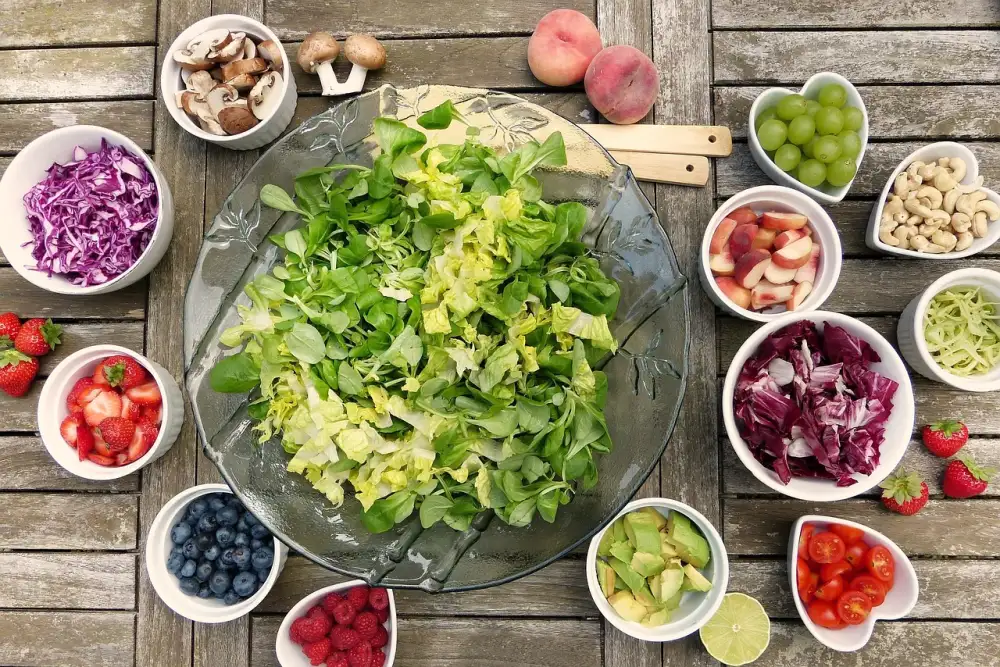Discover the Perfect Egg Substitute: Unlock a World of Tasty Recipes!

Eggs are a staple ingredient in many recipes, providing structure, moisture, and flavor. However, for those with dietary restrictions or allergies, finding a suitable alternative can be challenging. That's where egg substitutes come in. These versatile ingredients offer a world of possibilities for creating delicious dishes without using eggs. Whether you're vegan, have an egg allergy, or simply want to explore new flavors, discovering the perfect egg substitute can unlock a whole new realm of tasty recipes.
Health benefits of using egg substitutes
Using egg substitutes in your cooking and baking not only expands your culinary options, but it also offers several health benefits. One major advantage is the reduction in cholesterol intake. Eggs are high in cholesterol, and by using substitutes, you can significantly decrease your cholesterol consumption. This is particularly beneficial for individuals with high cholesterol levels or those following a heart-healthy diet.
Another advantage of egg substitutes is their lower calorie content compared to eggs. If you're watching your calorie intake or trying to maintain a healthy weight, using egg substitutes can be a great option. They provide similar texture and binding properties without adding unnecessary calories.
Egg substitutes are also suitable for individuals with allergies or dietary restrictions. Many people have egg allergies or follow a vegan lifestyle, and using substitutes allows them to enjoy a wide range of dishes without compromising on taste or texture.
Furthermore, some egg substitutes are fortified with essential nutrients such as vitamins and minerals, making them an excellent choice for those looking to boost their nutrient intake.
By incorporating egg substitutes into your recipes, you can create healthier versions of your favorite dishes while still achieving delicious results. So why not explore the world of egg substitutes and unlock a whole new realm of tasty possibilities?
Common types of egg substitutes
When it comes to finding the perfect egg substitute, there are plenty of options to choose from. Whether you're looking for a vegan alternative or simply want to reduce your cholesterol intake, there's a substitute out there for you.
One common type of egg substitute is applesauce. This natural sweetener not only adds moisture to your recipes but also helps bind ingredients together. It works particularly well in muffins, cakes, and quick breads.
Another popular option is mashed bananas. Not only do they add a subtle sweetness to your dishes, but they also provide moisture and act as a binding agent. Mashed bananas work great in pancakes, cookies, and even some types of bread.
For those who prefer a more savory taste, consider using silken tofu as an egg substitute. Its smooth texture makes it ideal for creamy desserts like puddings and custards. It can also be used in quiches and frittatas as a replacement for eggs.
If you're looking for an egg substitute that can mimic the fluffiness of eggs in baked goods, try using aquafaba. This magical ingredient is simply the liquid found in canned chickpeas or other legumes. Whisk it until it becomes frothy and use it as you would beaten eggs in recipes like meringues or macarons.
Lastly, ground flaxseeds mixed with water create a gel-like substance that can be used as an egg substitute in various recipes. This option works best in dense baked goods like brownies or cookies.
With so many options available, experimenting with different types of egg substitutes can open up a whole new world of culinary possibilities!
How to use egg substitutes in cooking and baking
When using egg substitutes in cooking and baking, it's important to understand how they function and how to incorporate them seamlessly into your recipes. Here are some tips on how to use egg substitutes effectively:
1. Read the instructions: Different egg substitutes may have specific guidelines for usage, so make sure to read the instructions carefully before adding them to your recipes.
2. Measure accurately: Just like with eggs, it's crucial to measure your egg substitute accurately. Use measuring spoons or cups to ensure the right amount is added.
3. Adjust consistency: Egg substitutes can vary in texture and moisture content, which can affect the final outcome of your dish. If needed, adjust the consistency by adding a little more liquid or flour until you achieve the desired texture.
4. Mix well: Incorporate the egg substitute thoroughly into your batter or dough for even distribution. This will help ensure that all ingredients are properly combined.
5. Be mindful of taste: Some egg substitutes may have a distinct flavor that could impact the taste of your dish. Consider this when choosing which substitute to use and adjust other ingredients accordingly.
6. Experiment and adapt: Don't be afraid to experiment with different egg substitutes in various recipes. Each substitute may react differently, so adapt your cooking time and temperature as needed.
By following these tips, you'll be able to confidently use egg substitutes in your cooking and baking adventures, opening up a whole new world of possibilities in creating delicious dishes without eggs!
Delicious recipes using egg substitutes
1. Vegan Banana Pancakes: Mash 2 ripe bananas and mix with 1 cup of almond milk, 1 tsp vanilla extract, and 1 tbsp maple syrup. In a separate bowl, combine 1 cup flour, 1 tbsp baking powder, and a pinch of salt. Add the wet ingredients to the dry ingredients and stir until just combined. Cook pancakes on a greased pan until golden brown.
2. Fluffy Vegan Omelette: In a blender, blend together ½ cup chickpea flour, ½ cup unsweetened almond milk, 2 tbsp nutritional yeast, ¼ tsp turmeric powder, and salt to taste. Heat a non-stick pan over medium heat and pour the batter onto it. Cook for a few minutes on each side until firm and golden.
3. Dairy-Free Chocolate Mousse: Melt 1 cup of dairy-free chocolate chips in a microwave-safe bowl. In another bowl, whip together 1 can of coconut cream (chilled) and ¼ cup powdered sugar until fluffy. Fold in the melted chocolate gently until well combined. Chill in the fridge for at least an hour before serving.
4. Eggless Meatballs: In a large mixing bowl, combine 1 cup breadcrumbs, ½ cup finely chopped onions, ½ cup grated carrots, ¼ cup chopped parsley, 2 cloves minced garlic, salt and pepper to taste. Mix well before adding in your favorite meat substitute (e.g., lentils or tofu). Shape into balls and bake at 375°F for about 20 minutes.
5. Vegan Chocolate Chip Cookies: Cream together ½ cup vegan butter or coconut oil with¾ cup brown sugar and¼ cup white sugar until smooth. Add in½ tsp vanilla extract and mix well. In another bowl, whisk together1¾ cups all-purpose flour with½ tsp baking soda and½ tsp salt. Gradually add the dry ingredients to the wet mixture, mixing until just combined. Fold in 1 cup vegan chocolate chips and drop spoonfuls onto a baking sheet. Bake at 350°F for about 10-12 minutes.
These recipes showcase just a few of the endless possibilities when it comes to using egg substitutes in your cooking and baking adventures. Get creative and experiment with different substitutes to unlock a world of tasty treats!
Tips for successful egg substitute usage
1. Read the recipe carefully: Before substituting eggs, make sure you understand the role they play in the recipe. Eggs can provide moisture, structure, or act as a leavening agent. Choose an appropriate substitute based on these factors.
2. Experiment with different substitutes: There are various options available such as applesauce, mashed bananas, yogurt, silken tofu, and flaxseed meal mixed with water. Try different substitutes to find the one that works best for your recipe.
3. Adjust the quantity: The amount of substitute needed may vary depending on the recipe. Start by replacing one egg with ¼ cup of substitute and adjust as necessary. Keep in mind that some substitutes may affect the texture or flavor of the final dish.
4. Consider flavor compatibility: Some substitutes like mashed bananas or applesauce can add a distinct flavor to your dish. Be mindful of how it will complement other ingredients in your recipe.
5. Use binding agents: If using a liquid substitute like applesauce or yogurt, consider adding a binding agent such as cornstarch or arrowroot powder to maintain structure and prevent crumbling.
6. Be patient with baking time: Egg substitutes may require longer baking times due to their moisture content. Keep an eye on your dish and test for doneness using a toothpick or cake tester.
7. Store-bought alternatives: If you prefer convenience, there are also commercial egg replacers available in stores that can be used as a direct substitution for eggs.
By following these tips, you can confidently explore the world of egg substitutes and create delicious dishes without compromising taste or texture!
Conclusion: Embrace the versatility of egg substitutes in your culinary adventures. Whether you're a vegan, have dietary restrictions, or simply want to explore new flavors, egg substitutes offer endless possibilities. From flaxseed to applesauce, these alternatives not only provide health benefits but also enhance the taste and texture of your dishes. So go ahead and experiment with these substitutes in your favorite recipes - you'll be amazed at the delicious results! Don't let the absence of eggs limit your creativity in the kitchen; instead, unlock a world of tasty possibilities with egg substitutes.
Published: 30. 11. 2023
Category: Recipes



